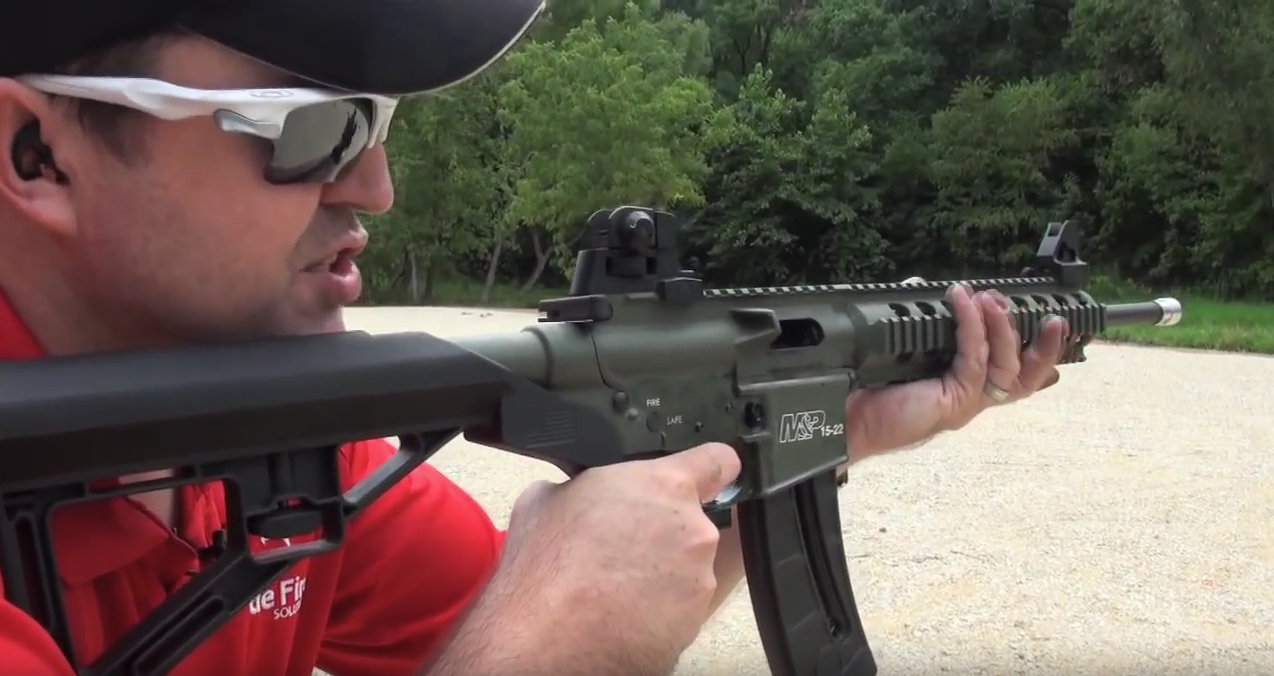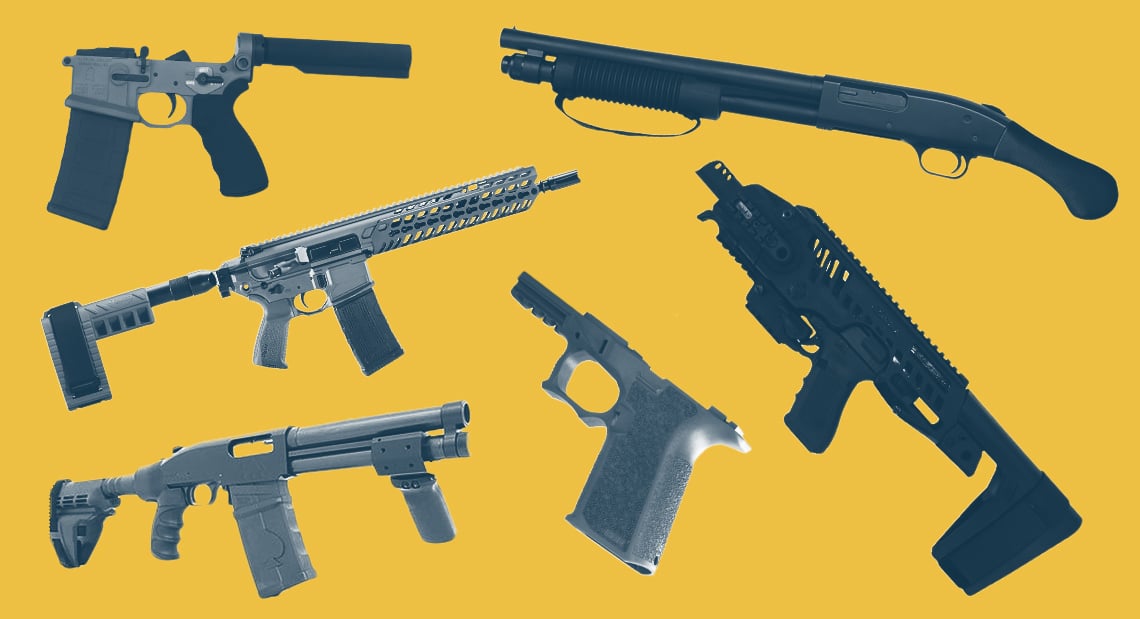The inventor and manufacturer of the bump stock is suing the bank that once processed its online sales, claiming the financial institution is holding a sizable sum of its money “hostage” as a result of the Las Vegas massacre. Experts say the dispute could have implications for the way financial firms deal with clients from the firearms industry.
In a federal lawsuit filed in May, Slide Fire Solutions alleges that Utah-based Merrick Bank improperly withheld more than $1.6 million in a reserve fund following the mass shooting. Merrick Bank retained the money after the two companies dissolved their business relationship in December 2017.
In the suit, Slide Fire accuses Merrick Bank of attempting to “shield themselves from tangential, hypothetical, unviable, and currently non-existent liability in personal injury lawsuits.”
The bank argues that threats to Slide Fire’s business arising from the Las Vegas shooting justifies its decision to withhold the funds.
Experts say the suit may be the latest sign that financial institutions are deciding that dealing with the firearms industry is more trouble than it’s worth — either in terms of liability, or bad press.
“This sends a message that [working with gunmakers] is an expensive and nasty business for banks to be in,” Heidi Li Feldman, a tort law expert and legal theorist at Georgetown University Law School, told The Trace. “It’s a good example of a regulated market doing its thing.”
The bump stock became part of the American vernacular last October when a gunman used rifles equipped with the devices to carry out the deadliest mass shooting in American history. Bump stocks enable semiautomatic weapons to mimic fully automatic gunfire, unloading entire ammunition magazines in seconds. As The Trace has reported, the devices are categorized as gun accessories under federal law, and, before the shooting, were subject to few regulations.
Just days after the attack, The Brady Campaign to Prevent Gun Violence filed a class action lawsuit on behalf of the victims, seeking damages from Slide Fire. In March, The Department of Justice submitted a proposal to reclassify the bump stocks as machine guns, which would effectively outlaw their ownership by civilians. At least eight states have passed their own laws banning or heavily restricting the devices.
Slide Fire abruptly announced that it would close its online store in May, but did not specify a reason for the move.
“Clearly, the impending regulations and website closure signifies that Plaintiff’s days are numbered and its credit risks are soaring,” the bank’s lawyers write in a defense motion.
It is a routine practice for banks that facilitate credit card transactions to set aside a portion of a client’s money to cover disputed transactions called chargebacks. A merchant agreement struck in 2011 between Slide Fire and Signature Card Services, a credit-card processor owned by Merrick Bank, allows the bank to withhold a “commercially reasonable” amount for that purpose. The original size of the reserve fund is not stated in the court documents, but Slide Fire alleges that following the Las Vegas shooting, Merrick Bank increased its withholdings to roughly 20 percent of total sales. As of May 24, four days after Slide Fire stopped selling bump stocks online, Merrick Bank was holding $1,626,330 in the reserve fund.
Contact Us
Learn how to contact our reporters securely.
In court filings, Slide Fire claims fewer customers returned products than usual after the Las Vegas shooting, and blasts Merrick Bank’s actions as unwarranted.
“This seizure threatened Plaintiff’s ability to pay employees, fulfill orders, and pay bills and taxes,” the lawsuit reads.
Merrick Bank claims that it is under no obligation to release the funds for a period of at least six months following the termination of the merchant agreement.
Lawyers for both Slide Fire and Merrick Bank declined comment.
Feldman, the Georgetown law professor, said that beyond covering costs, Merrick Bank could be concerned about being implicated in legal actions targeting Slide Fire. If lawyers can show that Slide Fire’s operations relied on the bank’s financial support, she said, they could argue that it is liable for the loss of life caused by the bump stock maker’s products.
“If they are named in the lawsuit, they have $1.6 million they could offer to release them from all claims,” she said.
Adam Winkler, a constitutional law professor at the University of California at Los Angeles Law School, and other experts said the chance that Merrick Bank could be held legally liable for the Las Vegas shooting is slim. But even a chance that it could have to defend such a lawsuit would make many companies think twice.
“The bank seems to be another of the many institutions taking a stronger stand against gun makers,” Winkler said.
A spokesman for The Brady Campaign declined comment, citing pending litigation.
Feldman added that Merrick Bank’s reputation with its customers could also be at risk. “If I am even bothered a little bit by the fact that my credit card company makes bump stocks, it’s easy to go out and find another credit card,” she said.
Amid the public outcry following the Parkland high school shooting in February, prominent financial institutions have stepped into the polarizing firearm safety debate by announcing new policies for clients in the gun world. Bank of America declared that it would stop lending to companies that make military-inspired firearms for civilian use. Citigroup issued a new requirement for its retailers to restrict gun sales to anyone under 21, to stop selling bump stocks and high-capacity magazines, and to perform background checks on all gun sales. JPMorgan Chase, Visa, and Mastercard have created formal and informal working groups to consider the issue.
“Banks are being thrust into this world that they haven’t had to encounter before in any meaningful or visible way,” said Rolland Johannsen, a senior consulting associate at Capital Performance Group. “The political battleground has moved to different spaces which is causing confusion and concern in a lot of different organizations.”
Gun companies enjoy broad legal protections when the products they make or sell are used to do harm, thanks to a federal law known as the Protection of Lawful Commerce in Arms Act. Feldman noted that the law does not shield the banks that finance firearms businesses, nor the hotels, nightclubs or malls where mass shootings have occurred.
She believes that, gradually, industries exposed to potential liability by gun violence could distance themselves from manufacturers and sellers of firearms — or put pressure on lawmakers to hold gun businesses responsible when shootings occur.
“What will happen,” Feldman said, “is all these other people getting caught up in litigation will understand that it is in their economic interest to make sure gun dealers and manufacturers are not protected anymore.”


